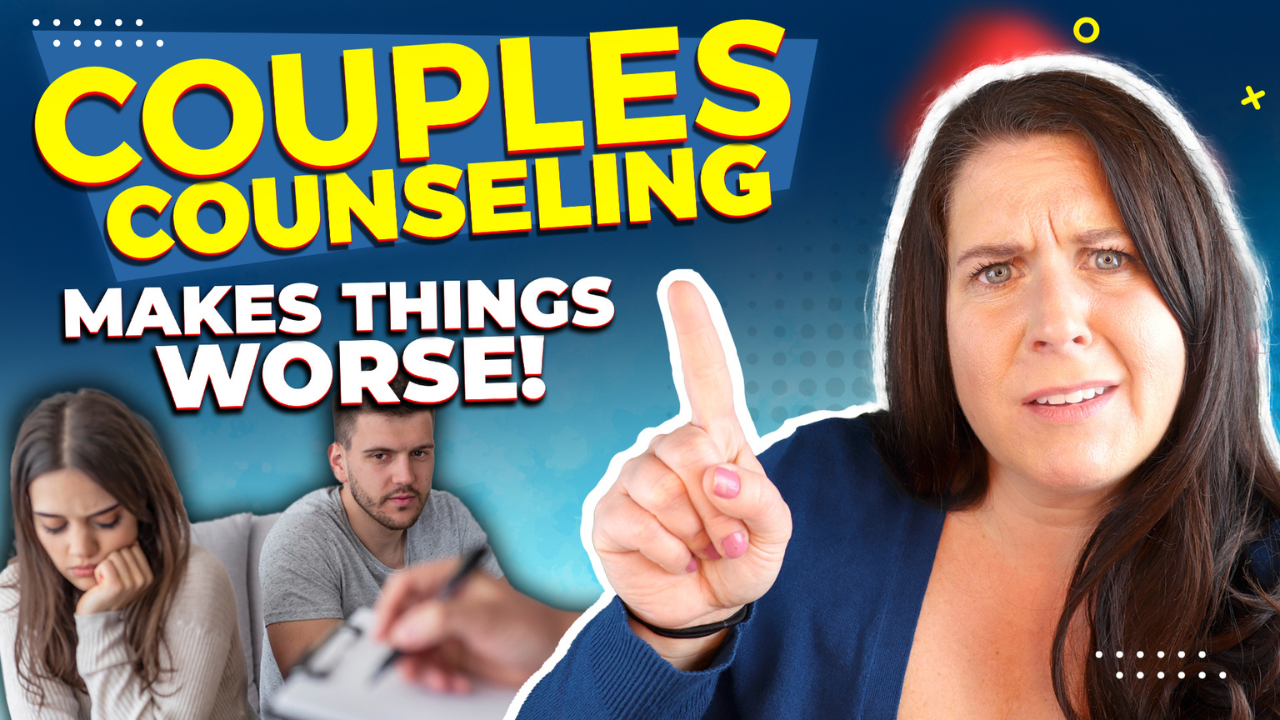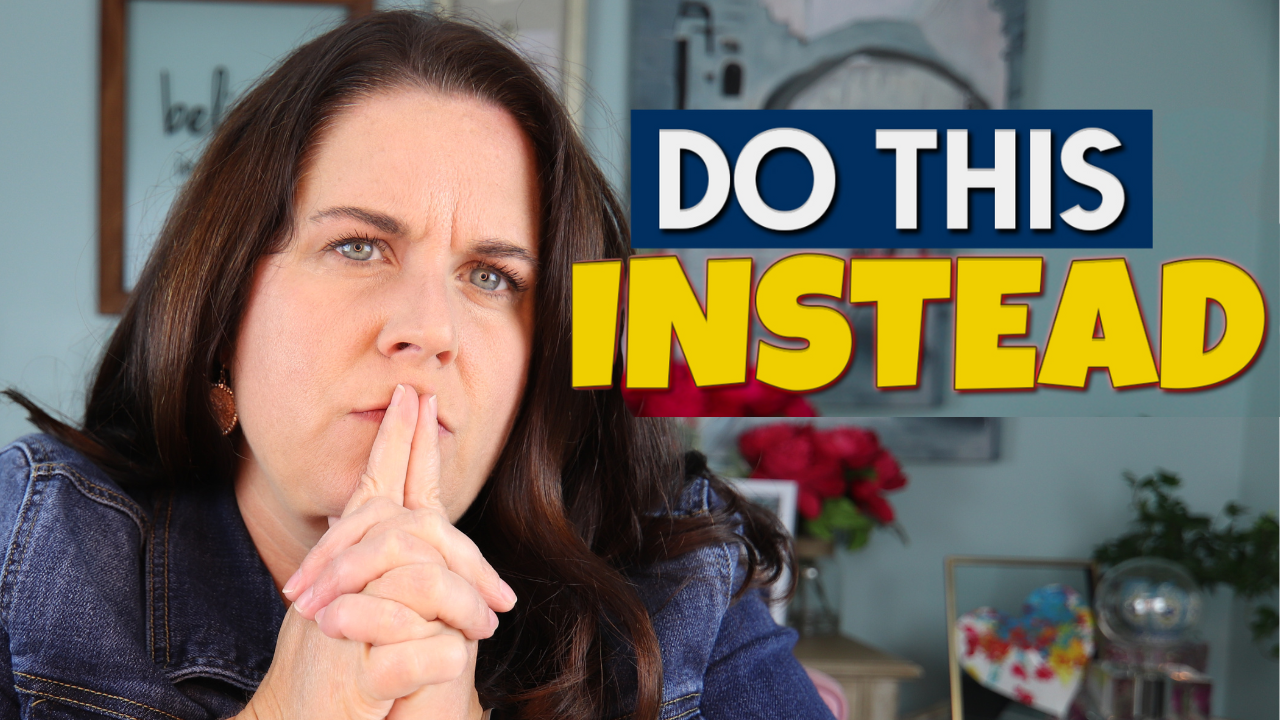Does Couples Therapy Make Things Worse? A must-watch for couples!
Here's what usually happens when people go to couples counseling and there's an addiction involved. Naturally, the person with an addiction problem doesn't want to discuss it. They're incredibly defensive about it, and if you bring it up in a couple's counseling session, that person will feel very much ganged up on whether they are or not, they're going to feel backed into a corner. Guess what will happen? They're going to quit going, and the only other option would be not to bring up the person's addiction. In that case, why are we ignoring the big elephant in the room?
Suppose the counselor doesn't realize this vast giant addiction problem is happening. In that case, they're probably going to be giving lots of bad advice because they're going to be working on the wrong things, even though I don't think that traditional couples counseling is beneficial when it comes to one or more other partners having an addiction I am a big believer in the idea that the whole family system needs to work on it all at the same time.
This entire issue is how I came up with the Hope for Families model in our office. What we do is we give the person who has an addiction or at least who's being accused of having an addiction they get a counselor. The family member receives a counselor all within the same office so that the two counselors can communicate with each other so that everybody's on the same page and we're not pulling people in separate directions. We're trying to bring people together, but it gives each side the place to talk about what's going on without feeling like they're going to start an argument or they're going to be in trouble or getting all defensive. It's the best of both worlds. It's like a mediation-type situation; sometimes, we call it lawyering. Everybody gets their advocate, and your counselor is assigned to you. It's their job to see your side of the situation to have your back, so both people feel like they have someone in their corner, someone who understands them, and then the two counselors can work together to help the couple resolve the issues sometimes we get in the same room together, but when that happens, all four people come in that way, and nobody feels ganged up on, so you can have a productive conversation.
If you have a loved one struggling with an addiction and are unsure what kind of help is correct, you can schedule a consultation with one of our family recovery counselors.
So before you talk your loved one into counseling or couples Counseling or treatment, make sure that that's the right direction for your situation and that you're getting good sound objective advice from someone who understands not just addiction but addiction in the context of a family system.
Amber Hollingsworth
I want you to watch this video titled, "Stop Telling Your Addicted Loved One to Go To Counseling" next because this might even be worse than if you went to couples counseling.


